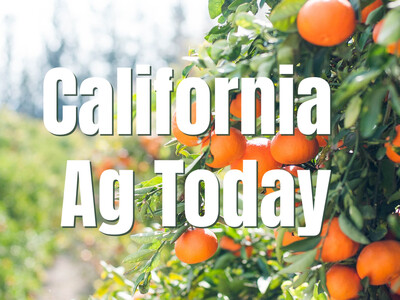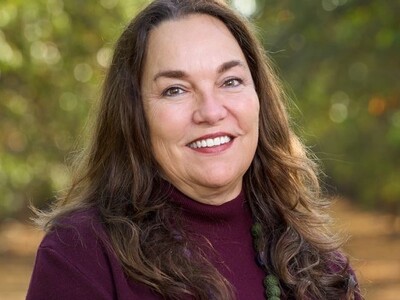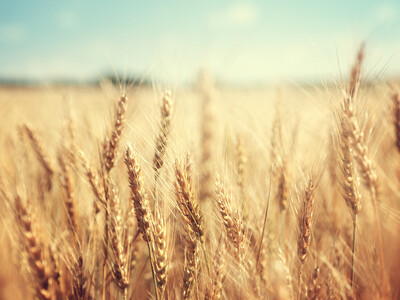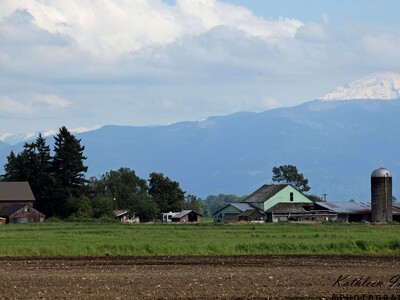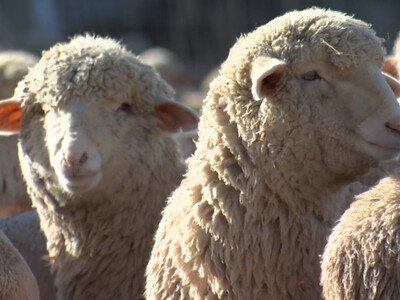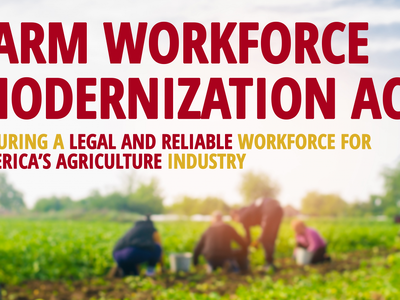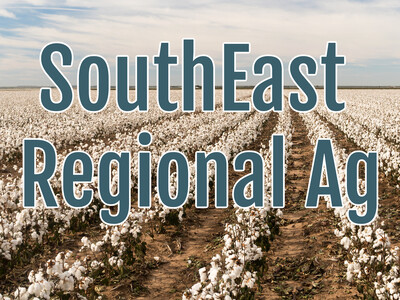Parella to retire
Michael Parrella, dean of University of Idaho’s College of Agricultural and Life Sciences, will retire next June, it was officially announced Sept. 5.Parrella said he made the announcement a little bit earlier than would have been expected to give the university time to find a replacement and not have to hire an interim dean.
“I’m just trying to do what’s in the best interests of the college,” said Parrella, who has served as dean of CALS since February 2016.
Agricultural industry leaders thanked Parrella for his service to the college and said he certainly has done what’s in the best interests of the university during his time as dean.
“Dean Parrella is someone who dreams big dreams and works hard to accomplish them,” said Rick Waitley, who has served as chairman of the Dean’s Advisory Board during Parrella’s tenure. “Dean Parrella will be missed for sure.”
As far as the Idaho Dairymen’s Association is concerned, “Dean Parrella is the best dean the College of Agricultural and Life Sciences has ever had,” said IDA Executive Director Rick Naerebout.
Naerebout said Parrella has fully recognized that animal agriculture – specifically the dairy and beef cattle industries – represents 60 percent of the state’s total farm revenue “and that the college’s efforts should line up with what that means in the state.”
Idaho’s dairy industry credits Parrella with reviving the idea of creating a major research dairy in the Magic Valley, which is the center of the state’s milk industry.
He has spearheaded a $45 million project known as CAFE that will be the nation’s largest and most advanced research center targeting the dairy and associated industries.
In addition to having all the components of a working dairy, the CAFE project – officially the Idaho Center for Agriculture, Food and the Environment – will include a demonstration farm, food processing research, and workforce development training for the state’s agricultural industry.
The 2,000-cow research dairy will be the largest of its kind in the United States and will help the dairy industry solve some of its biggest challenges, including environmental ones.
CAFE scientists will conduct cutting-edge research related to the dairy industry, including research on lagoons, nutrient management and surface and ground water contamination, and odor and emissions control.
They will also conduct a host of agronomic related research on crops at the demonstration farm, including on water use and efficiency, soil health and fertility, crop rotations, forage cropping and agronomy, animal genetic improvement, labor management and precision agriculture.
Naerebout pointed to some other big-ticket projects that will conduct research important to the state’s livestock industry.
The college recently held a groundbreaking ceremony for a $14 million meat science facility that will house U of I’s meat science program and provide it the space it needs to grow.
The 12,750-square-foot meat science laboratory will be four times the size of the 1960s-era facility that currently houses the university’s meat science program.
During Parrella’s tenure, CALS also began management of the Rinker Rock Creek Ranch near Hailey in partnership with the university’s College of Natural Resources.
UI officials describe it as a 10,400-acre living laboratory that conducts research that will help land managers across the West make informed decisions about how people live, work and recreate on rangelands.
“We very much appreciate those efforts and the energy he brings to the job every day,” Naerebout said.
CALS oversees nine agricultural research and extension centers around the state, where scientists study issues important to Idaho’s farming and ranching community.
Through University of Idaho Extension, CALS serves all Idaho counties with physical offices in 42 of the state’s 44 counties. Those offices conduct several hundred thousand face-to-face contacts each year.
The college is the only institution in the state to prepare ag teachers – most of the state’s school districts have ag programs – and about 90 percent of ag teachers in Idaho have a degree from CALS.
Parrella has told legislators he didn’t become dean of CALS to accept the status quo. Based on what has happened at CALS during his tenure, that has proven true.
Besides CAFE, Rinker ranch and the new meat science building, the college also built a new, $5.5 million seed potato germplasm facility on its Moscow campus.
The university’s potato germplasm program produces plantlets, or mini-tubers, which are then used by growers to produce plants in the field. From a quality perspective, this facility is where Idaho’s potato production starts.
“This facility will pay dividends for the state’s iconic and important potato industry for decades to come,” said Idaho Farm Bureau Federation President Bryan Searle, a spud farmer. “It represents just one of the ways that CALS has moved forward under Parrella’s leadership.”
The $2.7 million classroom and office facility at the Nancy M. Cummings Research, Extension and Education Center, which opened in 2020, provides learning and research space for the university’s primary cow-calf and forage research station located near Salmon.
It provides continuing education for people involved in the livestock industry, as well as learning opportunities for U of I students and the local community.
The university’s $25 million Deep Soil Ecotron, slated to be operational in 2026, will allow scientists to conduct research on deep soil, which is considered one of the last research frontiers.
“That is a unique facility in the United States,” Parrella said. “No one else in the U.S. has a deep soil ecotron.”
Parrella also started and oversaw a $12 million revival of the university’s Parma Research and Extension Center.
A new 9,600-square-foot building at Parma, called the Idaho Center for Plant and Soil Health, replaces antiquated facilities that were more than 50 years old in some cases.
The Parma center has entomology, soils, horticulture, crop management, pomology, viticulture, nematology, and plant pathology programs.
In 2018, CALS acquired the Sandpoint Organic Agriculture Center in Bonner County.
The center includes an organic heirloom fruit orchard, the college's only USDA-certified organic center, which produces 68 heritage varieties of apples, eight varieties of pears and eight types of other fruits.
The 66-acre facility also includes demonstration gardens, pollinator patches, u-pick raspberries, a cider house, meeting facilities and dormitories for visiting faculty and students.
While it's an organic center, it provides benefits for both organic and conventional producers, Parrella said.
"Conventional and organic agriculture share many common themes such as soil health and sustainability; strategies that work for organic production often translate to conventional farming methods," he said.
Beyond capital building initiatives, Parrella has also championed efforts to endow faculty positions in the college, including the $2 million Idaho Wheat Commission Bill Flory Endowed Chair in Risk Management, the $1 million Wayne Theissen Potato Research Professorship and the recently announced $3 million Saad Hafez Presidential Endowed Chair in Nematology, the first of its kind for U of I.
Parrella said these endowed positions benefit both the scientific community and the broader industry and allow U of I to recruit world-class faculty to the college.
In recognition of Parrella’s accomplishments, U of I president C. Scott Green last year announced that in addition to serving as CALS dean, Parrella would also serve as special assistant to the president for agricultural initiatives.
The CALS dean reports directly to the provost, so the new title provides more direct access to the U of I president.
As a result, industry also has a more direct line to the president now, Parrella told Idaho Farm Bureau Federation about the dual title announcement last year.
“It’s a recognition, I think, of the importance of agriculture and the college,” he said. “So, in a sense, it’s respect for the industry.”
“Michael Parrella has been a great dean for U of I’s College of Agricultural and Life Sciences,” Waitley said. “It will take a special person to step into his shoes to complete the goal of building a better and stronger Idaho agriculture industry.”
Parrella said if he is remembered for one thing, “I would like to be thought of as the dean who was responsible for moving the college forward in a dramatic way.”
He said partnerships, with industry and lawmakers, have enabled those projects to move forward.
“We can’t do those types of things without them,” Parrella said. “We listen to stakeholders and try to be responsive to them.”
Waitley said Parrella will be honored with a plaque, reception and video highlighting his accomplishments during next February’s Ag Summit, which is a major meeting of all types of ag industry leaders in the state.
Waitley said when Parrella was initially hired, he indicated that the job was intriguing since he loved to fly fish and heard Idaho had great waters for the hobby.
“To my knowledge, there has been limited fly fishing due to how busy he has been,” Waitley said.
Because he was so busy with the job, “I haven’t done as much fly fishing as I would have liked,” Parrella said. “That will certainly change after I retire.”
He said he and his wife, Debbie, love Idaho and will split their time during retirement between their place in north Idaho and visiting family and grandchildren in California and Virginia.
He said he has built a lot of strong relationships in Idaho and that is one of the things he will miss the most.
“It’s taken years to develop those relationships; one of the things I will clearly miss is leaving that all behind,” he said.
He said there’s a certain amount of excitement and intellectual stimulation that comes along with the various major projects and initiatives that CALS is undertaking.
“Suddenly being taken out of that environment, it will be a big change. I will miss that,” he said.






